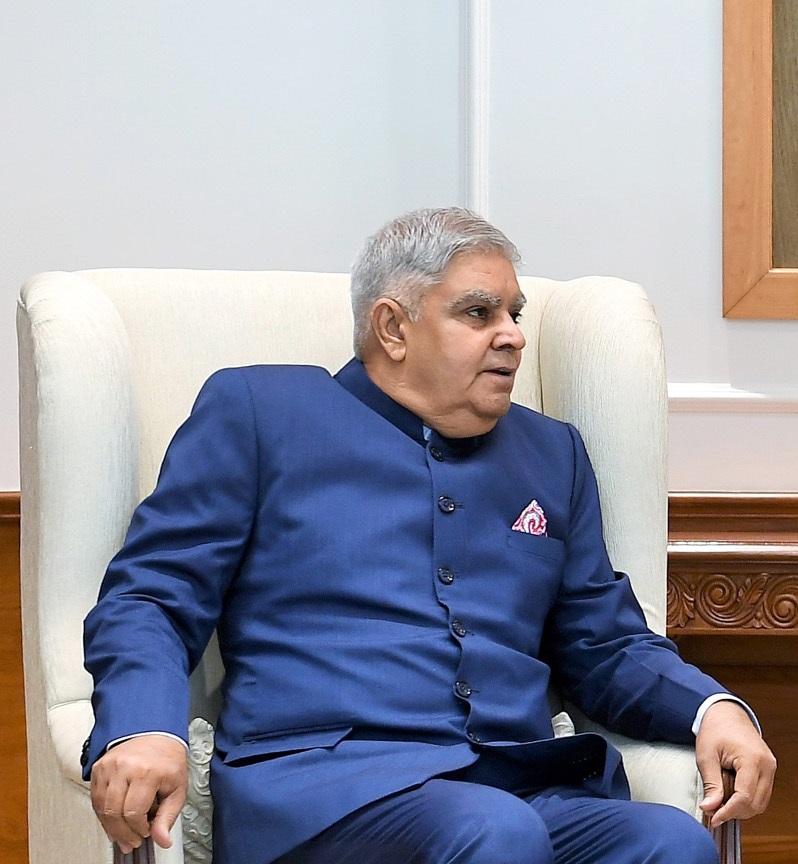VP Dhankhar underlines need for reforming in Indian Arbitration system
Addressing the impact of disruptive technologies on arbitration as a dispute resolution mechanism, the Vice President underscored the need for adaptability to ensure effective and timely resolution amidst technological advancements.

- Country:
- India
The Vice-President, Shri Jagdeep Dhankhar today underlined the need for reforming in the Indian Arbitration system. Echoing the Chief Justice Shri Chandrachud’s concerns who had described the current state of arbitration in the country as an "Old Boys’ Club" due to excessive control over it by former judges, the Vice-President emphasized that while individuals may struggle to bring about systemic change, institutions are spinally strong to address such challenges.
He stressed the pivotal role of institutions in fostering meaningful reform and noted that they embody the collective wisdom of their respective domains.
Addressing the gathering after the inauguration of the SILF building today, Shri Dhankhar described Indian arbitration process as ‘arduous’ one. Expressing his disapproval of using arbitration as “an additional tier in the conventional litigation ladder,” VP highlighted that the process has become very complex. “Award (by arbitration court), objection to award, appeals, and then invocation of Article 136 of the constitution… followed by review and Curative petitions,” has become the norm, he said while stressing the need for streamlining to enhance efficiency.
Shri Dhankhar called on industry, legal fraternity and all other stakeholders in arbitration dispute resolution to work in unison to ensure the same is in the country and as per our legal regime. “India has everything that needs to for emergence of global arbitration hub”, he added.
Referring to the three new laws - the Bharatiya Nyaya Sanhita, the Bharatiya Nagarik Suraksha Sanhita and the Bharatiya Sakshya Act, VP said that these have unshackled the Indian criminal justice system from its colonial legacy while keeping the focus on justice rather than punishment, traversing from ‘Danda Vidhan’ to “Nyay Vidhan’. He further expressed his anguish over the fact that there are many eminent lawyers in Rajya Sabha, but their active engagement in the proceedings of the house is highly limited. He underscored the importance of their contribution to enriching constitutional discussions on this esteemed platform.
Highlighting the critical importance of dispute resolution mechanism, Shri Dhankhar stated that credible and robust dispute resolution mechanism nurtures harmony and contributes to blossoming of economy and democratic values. “Disputing parties to not walk out of arbitration process as enemies,” he stressed.
Lauding the exemplary performance of India's three organs – the judiciary, the executive, and the legislature, in propelling the nation towards unprecedented growth, Shri Dhankhar emphasized their collective efforts in fostering an environment of hope, progress, and global recognition.
Addressing the impact of disruptive technologies on arbitration as a dispute resolution mechanism, the Vice President underscored the need for adaptability to ensure effective and timely resolution amidst technological advancements.
Dr. Lalit Bhasin, President, Society of Indian Law Firms, Mr. Shardul Shroff, Senior Vice President, Society of Indian Law Firms, Mr. Jyoti Sagar, Associate President, Society of Indian Law Firms and other dignitaries were also present on the occasion.
(With Inputs from PIB)
- READ MORE ON:
- Jagdeep Dhankhar










